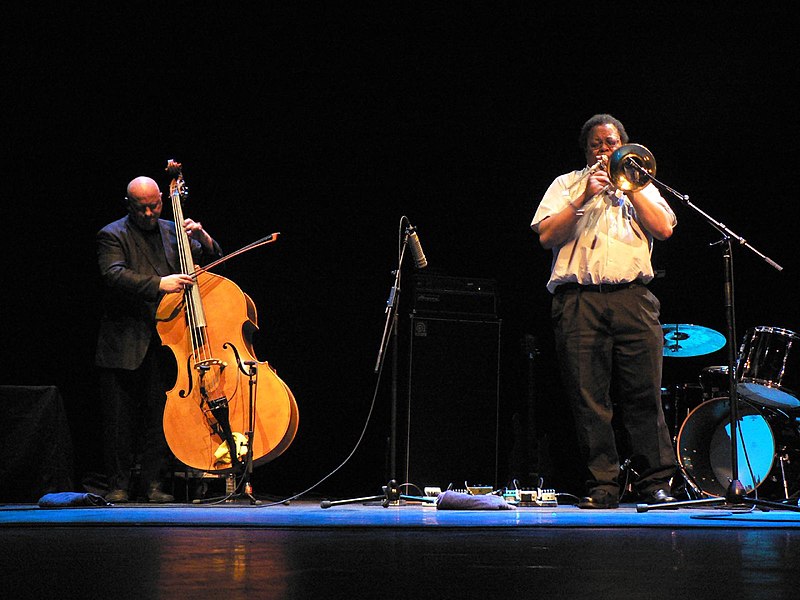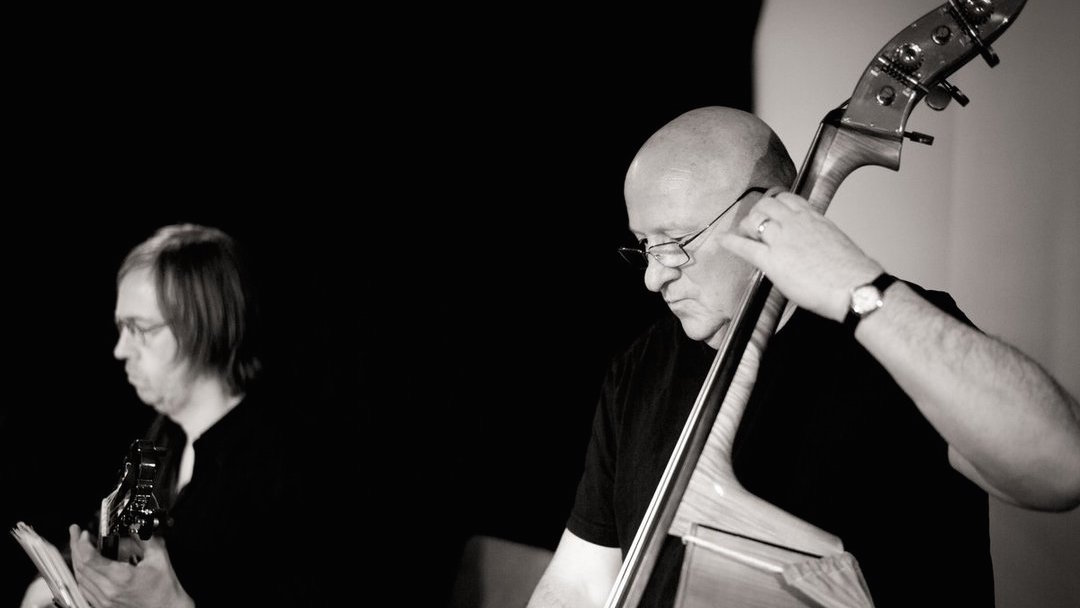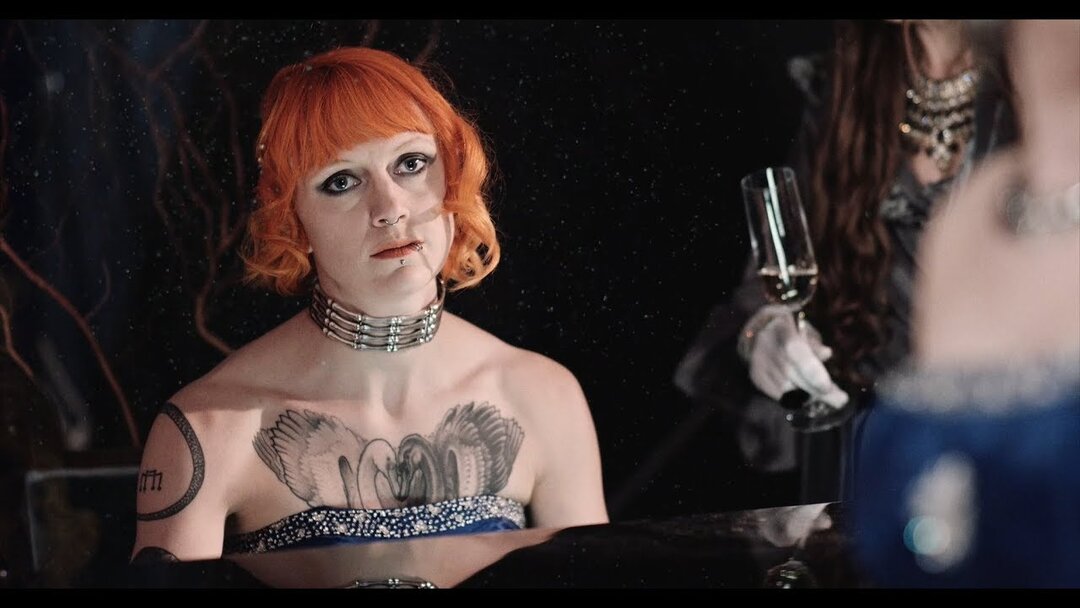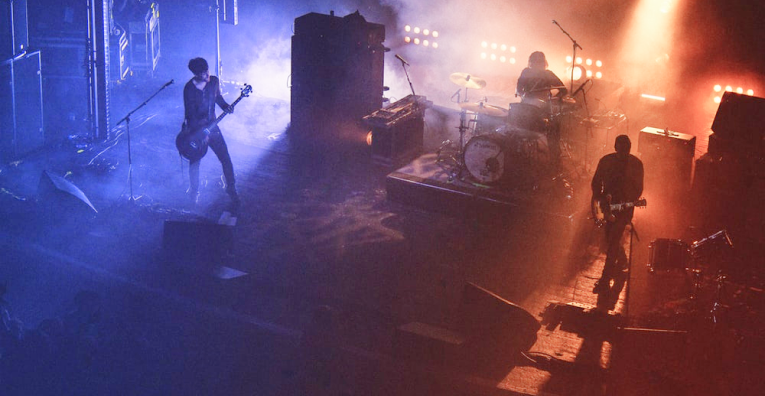Gavin Bryars’ music is incredibly moving, deeply thought and as irresistible to audiences as ever. Late last year he brought the Sinking of the Titanic to Kings Place in Camden on the fiftieth anniversary of its release. We were fortunate enough to have a chat over the phone before the concert took place. Later this year you can catch him in Belgium, Germany, California and beyond.
What can you tell me about the new version of “The Sinking of the Titanic”?
GB: Well this version is probably the one we did in the centennial year of the Titanic release which is in 2012, under the… sort of the larger version which includes Phillip Jeck in the rising time table, and also some film projections by director and artist, Bill Morrison. And we did that for the whole tour in a few different countries, with this version.
And it’s sort of the largest version we do. I mean, I’ve done a few orchestras but in terms of ensemble… it’s also the longest. Generally, it’s between 30 minutes and an hour, but this is around 75 minutes. And it uses the film projection from Bill Morrison which has some archived footage which is found in the Titanic and also some images where he reworked and modified historic images to give perspective all the way through.
So it’s that sort of version, which is probably the most mature version of the piece I’ve done. And that was a centennial piece and this is sort of 50th anniversary piece, so we decided that that was the version to do. But now everyone’s about 7 years older than we were last time, so it’s slightly different in some ways. And I will add a few little extra references.
So do you find that this often happens when you return to pieces you’ve written? Like they mature or do you think that things stay static?
I think that when you come back to something it comes back in a slightly different way. Even a piece that is completely predictable, you get a different feeling. It’s not a routine like a rock band playing on tour, doing the same thing every night. It sort of invests some new energy into it. So in the case of “The Titanic”, the English one is a much looser piece… the notation is much looser.
It’s possible to add some more musical material because the whole piece arises from a body of research around the subject of the Titanic, and the sinking and all sorts of things around it. So there would come a time where I would come across a reference or something else on my notes which I haven’t used so I would put that it.

You describe it like a research project?
GB: Well, it’s based on research. It’s based on ideas… The piece comes from ideas first rather than music. I mean, there’s a musical image of the fact that the band continued to play – “The Ship Went Down” – that was the first starting point of the piece, so it’s a very striking starting point. Historically, (sure the world knows) but it gets exaggerated, misinterpreted or you could get the wrong hymn, and all kinds of things. But the central image is something that most people are vaguely aware of, when you talk about the Titanic.
Definitely. I saw that you performed one version of it in a swimming pool?
GB: Yeah. It was in Belgium. It was a renovated Art Nouveau pool. It was not a big pool, but there was a version done in Canada which I wasn’t involved with. It was a huge swimming pool, but the one I did in Belgium was a smaller one.
It was because you could only have… on the long side, you could only have like 2 people sitting side-by-side in rows. So like around 40 rows of 2 on one side and 40 rows of 2 on the other… and few on the balcony. It meant that you couldn’t get that many people, and so we played it twice. And in that one we did play on a raft, floating on the shallow end, which was a bit… potentially dodgy but it was actually alright.
Have you considered trying to fully reenact, without being too gimmicky and what would happen? Or is that sort of the point, where the music is reflecting what happens when you go inside the water?
GB: I have done some things which involved some experiments with underwater sound. There are some pre-recorded materials in the piece which do have that treatment of string music in what was played, being treated as though it would be heard underwater so It has a rather “echo-ish” effect rather than some sort of muffled sound.
It’s the kind of thing when you’re in a pool and you’re underwater, and you can hear sounds but not necessarily very clearly but if you… there were some pools where music was played- there were speakers- so you could actually hear the music underwater. I think in synchronized swimming, I’m sure they do that because otherwise they wouldn’t be able to synchronize.
Do you use technology in your work or is that something you like to leave to other people?
GB: Most of the stuff I do is using specific things like human voice or musical instruments, much more than technology.
I have used technology in the past but it’s not something I spend a lot of time on. There are people who… that’s their lives and in a way, I’m slightly old fashioned. I still write music with pencil and paper. I don’t use the computer for my music writing either. So it’s like a more effective way of working. I can introduce some technology in performance, as in this case.
I also saw that you worked with Aphex Twin or he did a remix of this track?
GB: Yes. It was in the mid-90s when I made the version on Phillip Glass’s label, Point Music. (It was the second album I did. The first one was “Jesus’ Blood Never Failed Me” with Tom Waits.)
And Phillip told me that he was thinking of doing a remix of one of his pieces, and he was interested in doing a remix of The Titanic. In a way, he was sort of asking permission but I knew that whether I gave him permission or not, if he wanted to do a remix he would do it. So it’s like, “Just do it”.
So in fact, I let Richard (Aphex Twin) have a lot of component parts rather than just the original full recording. He had a lot of things which he just made it up, so he was able to construct something rather more independent, rather than just the remix of parts of the album. And it was very very beautiful.
Occasionally, in performance, I will just use maybe a minute or so of his remix in a distant speaker so it would be like the sound of an engine throbbing in the background.

Wow.
GB: So I think there will be a moment where you will hear a fraction of the Aphex Twin’s remix in this performance.
That’s cool. When you mentioned Phillip Glass, I found that you said that Phillip’s music lacked irony. I was wondering if you could expand as to what that means?
GB: Well, I mean, Phillip… His music is very direct and very straight forward. It’s sort of, genuinely music about music. It’s musical patterns. His way of writing music is really just manipulating notes, and so you could say that Phillip doesn’t really have irony… it’s sort of, you could say that most American people don’t have a sense of irony.
They don’t really get a lot of English humour. I mean they’d think, ‘Oh, Monty Python. That’s really funny’, but they don’t really get a lot of it. They don’t have that sense of looking from the outside and reflecting in a sort of rather discouraging way of themselves. I think that is more of an English characteristic.
Could you tell us a bit more about pataphysics? I know that you’re involved and you’ve got this long grand title.
GB: I don’t think we have much time. Pataphysics really is a long topic.
It’s sort of this imaginary science which comes out of the work French writer Alfred Jarry, and it’s a kind of organized sort of study that has been studied by a group of people that has existed since 1949. It still goes on in the Institute of Pataphysics. The main centre of pataphysics is in France and the whole literature is in French. And it’s a way of playing with ideas and making connections in a pretty unorthodox way. It’s a long and quite complicated subject, but I’ve been involved with the college for many years.
I see. Is that how you got to know Brian Eno?
GB: No, no. I knew Brian Eno when he was a student. He was a painting student at Winchester. In fact, when I moved out of my 1 room flat in Kilburn, he moved in, in the early 70s. Before he got into music. The reason he did get into music is because I lived on the bottom floor, so we knew each other as friends, long before he loved rock.
Do you like to use any Oblique Strategy, or any other sort of…
GB: No. No, no.
Oh it’s a “no” for that?!
GB: No. I just use my brain.
What did you think of being a university lecturer?
GB: Well, I was teaching. I enjoyed teaching, and I was meant to become a professor. I taught for 25 years, and I always enjoyed the company of students and the kind of questions they raised. It gives you a breath of your subject. You have to keep on top of things. The only thing I found eventually was that I was doing two full-time jobs; I was composing and teaching.
Eventually, it became too heavy, I was pushing myself so much in different directions that time was running out and I was just very very tired, so I had to give up one, I gave up teaching and really quickly went back to the dangerous life… the freelance life which is the opposite of what people would usually do at that time. That’s when they’d settle down and build up their income for their retirement, and I didn’t do that.
Do you have any plans to bring back “Jesus Blood”?
GB: Oh, yeah. I play it quite regularly. We did this all-night version at the Tate Modern in April, and I play it from time to time. And in June I’m getting this composer in a festival in Tasmania during New Years.
It’ll be a version of “Jesus’ Blood” with a very large body of strings. The outlets in Symphony Orchestra and some extra string players in Hobart. I’ve also made a new version for an acapella choir, which is in Australia, I’m touring next year.
In the case of “Jesus’ Blood”, the music itself is pretty much the same, though I can add different kinds of instrumental combinations and so on but there’s something in that “old man’s voice” which touches me even now, every time I heard it. And I must have heard it many many thousands of times.
(It would be around 48 years since I first did that voice, and these two pieces (“Jesus’ Blood” and “Titanic”) are the two which remain from these early times. I think those two are the ones that survived because I can still find something fresh in them.)
Yeah. It’s quite an amazing find.
GB: Yeah.
The story behind it.
GB: It could have just not happened, that piece of tape could’ve gone to the waste bin, which is where it was destined. That’s where it’s being thrown. I just happened to listen to it and not throw it away. It’s just complete fluke.
Yeah. Have you had any other good flukes?
GB: Life is full of good flukes.
*Both laugh*
GB: If you just pass them out it just doesn’t happen anymore, but I’m always open to ideas and possibilities. In fact, when I was first involved in composing, I had this habit of simply saying “Yes” to every project and then finding out how the hell do I do it, because that way you learn new things all the time.
Would that be your advice if someone was looking to you for career advice?
GB: Yes. I mean there are things that are just plain and stupid, like commercial crap. But if someone asked you some interesting question about possibilities of doing something, at least have the surface interest – say “yeah… I’ll go ahead and have a look at it”.
Nice. I’m sure you’ll be inundated with requests once this interview is published.
GB: I’m running out of years!
You’ve collaborated with many many people. Do you have plans in the next year? Have you got anything standing out for you?
GB: Well. I’ve got a few things in Tasmania next year. I’m probably doing some stuff in Ireland at a festival round with some Irish writers. I also worked on my last opera, with a French rock musician. He worked with a classical singer in the same opera. I may do something with these two together, with my ensemble.
They’re really interesting people and interesting musicians. Maybe I’ll write some stuff with them next year. I also work with a traditional Irish singer Ó Lionáird who sings with The Gloaming. I worked with him for around twenty years. I’m going to do the work with him next year, as well. So it’s those kind of things. And then something else may come up, I don’t know. I did some work with Father John Misty. They asked me to do some work with them next year, and I’ll look at that.
So what are you doing with the rest of your day?
GB: Every four or five years the British Library collects all of my manuscripts. Every four or five years I have to just deliver my work to them. I’m just putting them all into something. It’s a ridiculous amount of work that I’ve written in the past four or five years.
Absolutely huge amount of work. I filled around 17 bags, and so I get them carried down to the library. I’m also writing a string quartet so I’m getting along with that. So yeah I’ve got things to do. I’m not just an old man who got slipped down from his allotment.
And the last thing is, I bloody love “Jesus’ Blood Never Failed Me Yet”. My friend introduced me to it when I was around 18 years old. It blew my mind. I was like, I never heard anything like it. It was amazing.
GB: Often, people who hear it are going through difficult circumstances and it certainly means a lot to them. It’s a piece that has an incredible power and I’m aware of that so I treat it likely. I am aware that it’s a sensitive thing and I don’t fool around. Everything I do with that piece is to respect the old man’s voice and no matter what I do to it, that’s the centre. I don’t try to do anything so clever that it takes the attention away from the old man.
Thank you very much, Gavin!
GB: You’re Welcome!
Bye, now.
GB: Bye!




